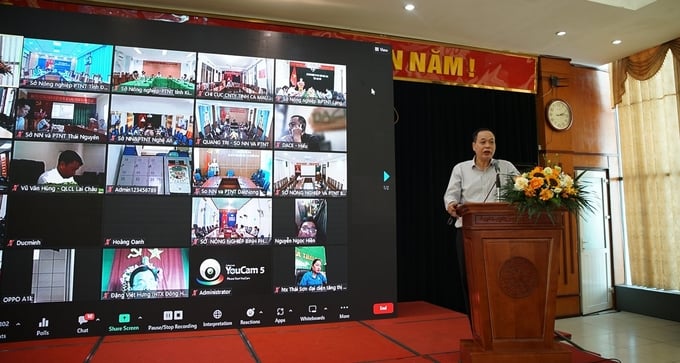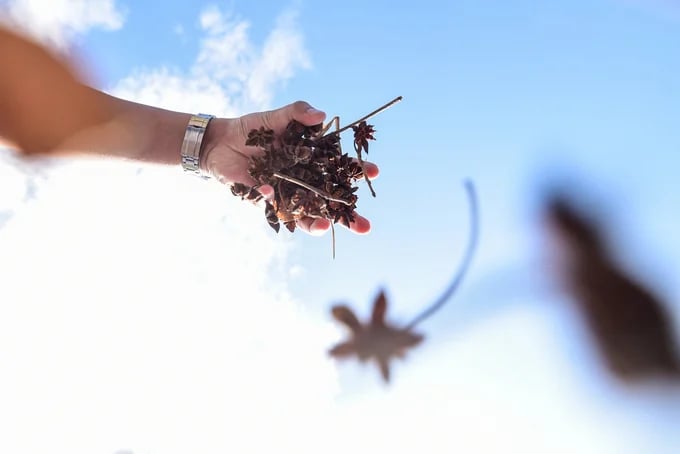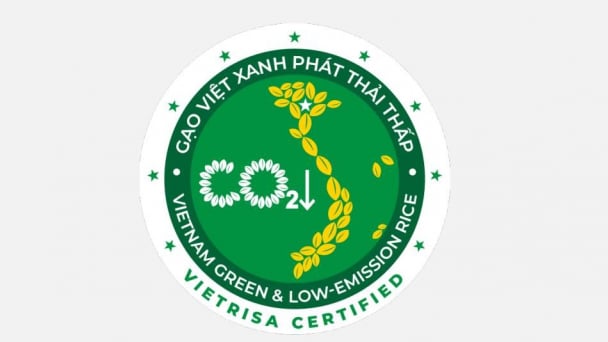May 16, 2025 | 10:21 GMT +7
May 16, 2025 | 10:21 GMT +7
Hotline: 0913.378.918
May 16, 2025 | 10:21 GMT +7
Hotline: 0913.378.918

Mr. Nguyen Nhu Tiep, Director of the Department of Quality, Processing and Market Development, spoke at the forum Promoting the export of local spice and specialty products to key markets on October 31.
Mr. Nguyen Nhu Tiep, Director of the Department of Quality, Processing, and Market Development (Ministry of Agriculture and Rural Development), stated that Vietnam has significant potential for producing a variety of spices, including cinnamon, nutmeg, and other exotic herbs used in Asian cuisine. In addition to the main markets, targeting regions with significant Asian populations is a new direction with potential consumer bases for ingesting tropical specialty products and seasonings.
Many of Vietnam's spice products have established themselves in the international market. Vietnam has approximately 171,000 hectares of cinnamon plantations, which represents approximately 17% of the global cinnamon area. Vietnam rates third globally in terms of cinnamon production and export, with a total output of 46,000 tons, after Indonesia and China. For nutmeg, Vietnam ranks second in the world after China, with an estimated annual production of around 20,000 tons on an area of approximately 55,000 hectares.
Currently, Vietnamese cinnamon and nutmeg are widely consumed in various regions, including South Asia (such as India and Bangladesh), the Middle East (UAE and Pakistan), East Asia (Japan, Taiwan - China, South Korea), the United States, and European Union member countries. This is as a result of the rising demand for basic materials in the food, cosmetics, and pharmaceutical industries.
Mr. Nguyen Ngoc Bach, a representative of the Department of Quality, Processing, and Market Development, believes that consumer trends are shifting toward secure and environmentally-friendly products in relation to the global spice market trends that influence production in Vietnam. Consumer behavior has adjusted towards sustainable development, assuring source traceability, creating value-added products, meeting market quality requirements, and ultimately integrating digital platforms and technology into supply chains and value chains.
In addition, spice products must satisfy the requirements for regulating pesticide residues and ensure quality and safety. Therefore, transitioning to sustainable agricultural practices and ensuring clear source traceability are indispensable for establishing a sustainable and globally competitive spice industry.
Due to shifting consumer perceptions, preferences, and a desire for a healthier, immune-boosting, and environmentally conscious lifestyle, products containing cinnamon, nutmeg, and medicinal plants are gaining popularity and expanding their export markets.
According to Mr. Tran Van Cong, Vietnam's Agricultural Counselor to the European Union (EU), Europe is one of the world's primary importers of spices and seasonings, accounting for approximately one-fourth of all imports. Spice and seasoning imports in 2021 reached approximately 2.83 billion euros. Of this, imports from developing countries amounted to 1.8 billion euros, making up 60% of Europe's imports in the 2019-2021 period, with a 9% annual increase.

With anise, Vietnam ranks second in the world, after China, with an estimated annual output of about 20,000 tons on an area of about 55,000 hectares, among others.
According to Mr. Cong, the demand for sustainably produced spices, novel sources, and the health advantages of spices in international cuisine is growing among EU consumers. In the European Union, the use of spices and seasonings in international cuisine is a leading trend.
However, exporting to this market requires adherence to several requirements, including strict control of harmful substances, allergenic compounds, pesticide residues, thermal treatment, phytosanitary inspections, food safety certifications, and transparent supply chains.
Mr. Pham Quang Huy, the Agricultural Counselor of Vietnam to the United States, stated that the post-Covid-19 increase in consumer focus on immunity and health protection has led to a rise in demand for Vietnamese spices in another key market. Mr. Huy believes that diversifying spice products for the culinary, cosmetics, and pharmaceutical industries is necessary to increase Vietnam's market share in this sector and establish Vietnam as a preferred destination in the global spice supply chain. In the culinary industry, increasing the recognition of various seasonings by combining them with fish sauce alongside popular dishes such as pho and nem can increase their popularity in this vast market.
Mr. Huy also emphasized that spice plants not only provide economic value but also offer valuable, indigenous genetic resources that contribute to poverty reduction, biodiversity conservation in the forest understory, and help mitigate environmental contamination in the US market. These are factors that businesses can use to promote Vietnamese spice products in response to the green consumption trend, environmental protection, and emission reduction in the US market.
Vietnam is one of the main spice producers and exporters in the world, with exports accounting for about 11% of the global market share in 2022. Vietnam intends to become a sustainable exporter of multiple spices by 2023, with exports of the entire industry reaching over USD 2 billion in the next three years.
Translated by Dieu Linh

(VAN) Veterinary training should focus on quality, not just quantity. Veterinarians also need more options to pursue specialized training.

(VAN) The veterinary industry needs to be viewed objectively and further invested in to properly demonstrate its role and importance in the new context.

(VAN) The number of veterinarians graduating each year is not enough to meet actual needs, hence a difficult problem for the growing livestock industry.

(VAN) The strategic partnership between Cambodia, the Philippines, Vietnam, and CGIAR ensures that innovative solutions effectively address national priorities for food system development.

(VAN) This was affirmed by the UK Minister of State at the Department for Environment, Food and Rural Affairs during a working session with Deputy Minister Tran Thanh Nam on May 13.

(VAN) On May 13, the Ministry of Agriculture and Environment, in coordination with the Embassy of Vietnam in the United Kingdom, organized a seminar titled 'Connecting trade in Vietnam-UK agricultural, forestry, and fishery products'.

(VAN) The launch of the Vietnam green and low-emission rice brand is a positive signal for both businesses and farmers, marking readiness to reach new heights in the global market.